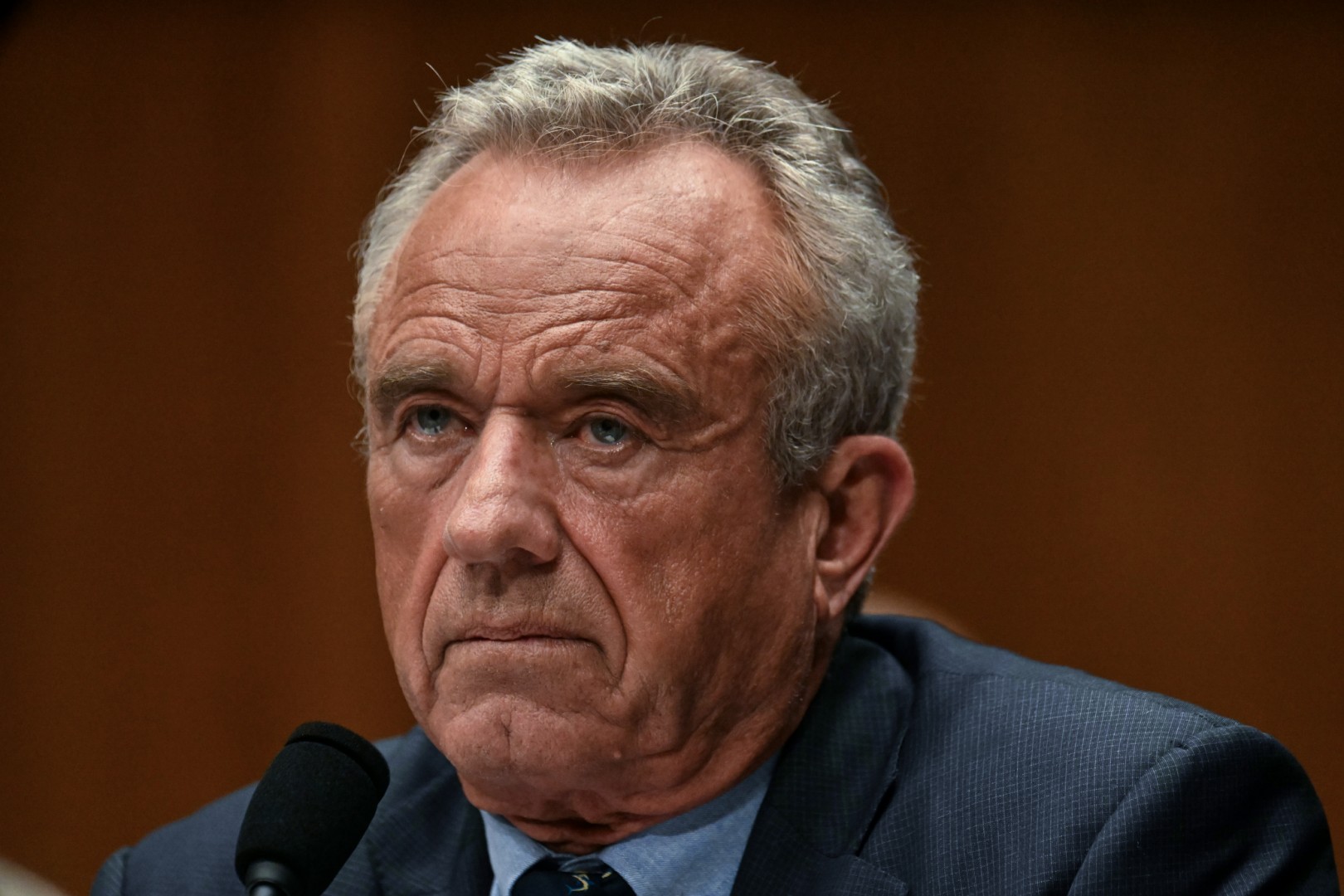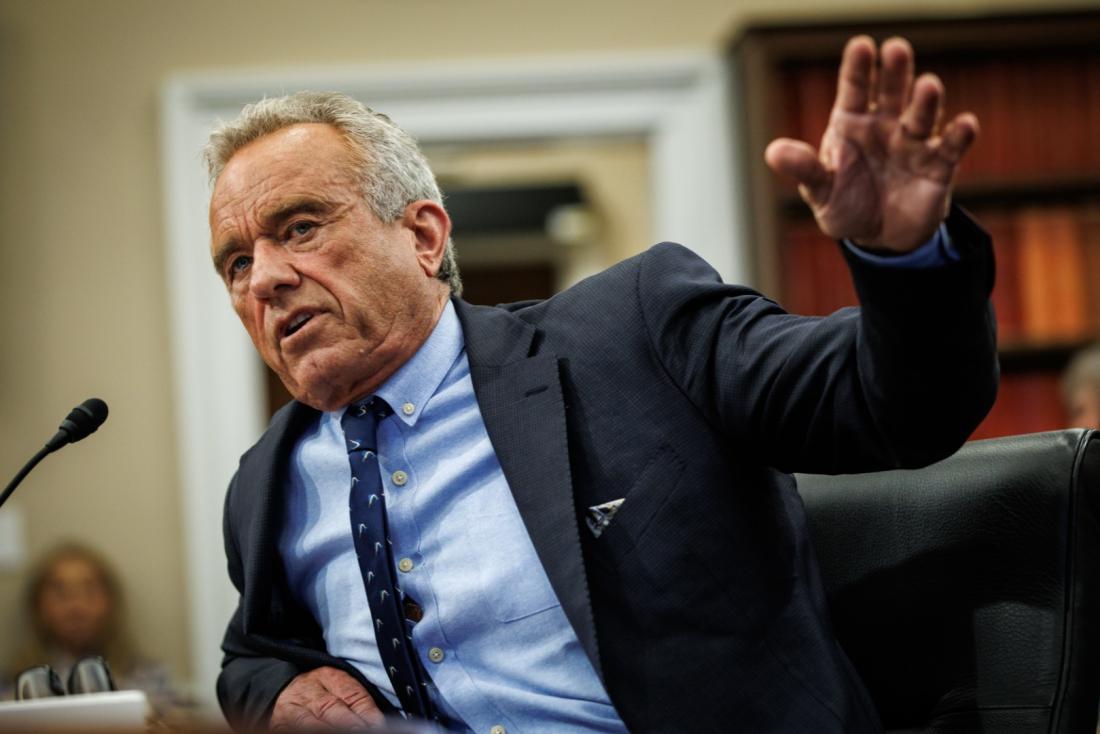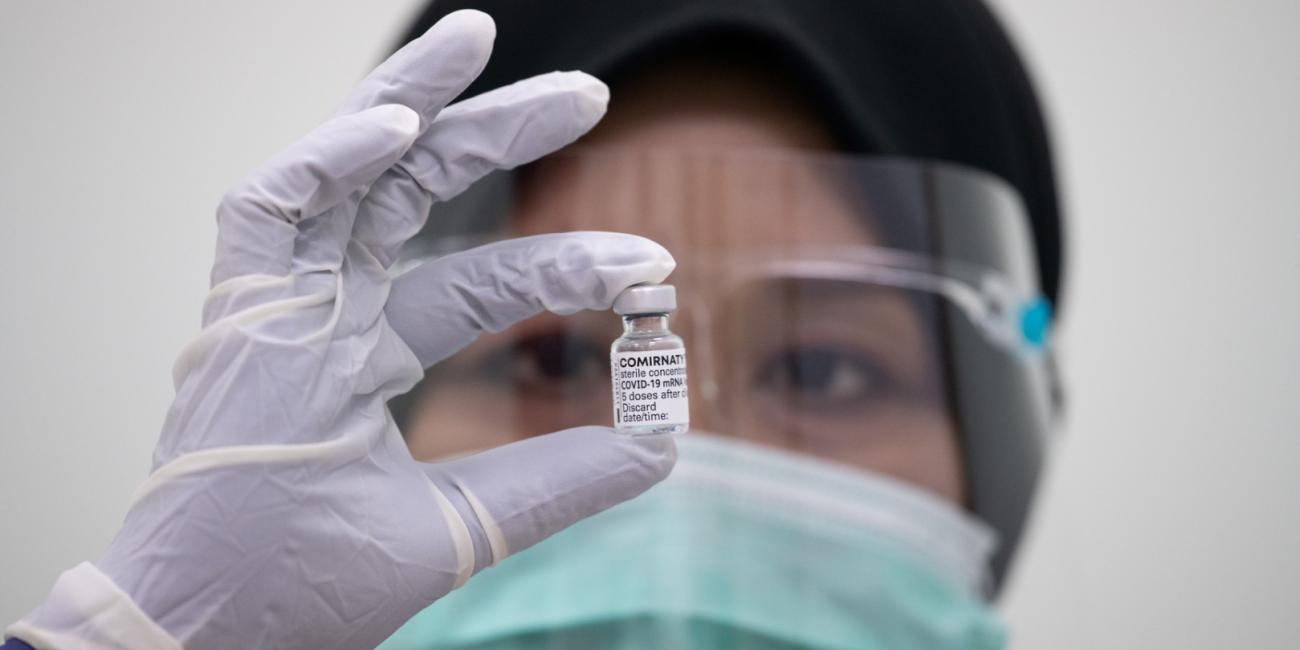
RFK Jr misleads on chickenpox vaccine use in Europe
- Published on May 22, 2025 at 19:27
- 4 min read
- By Marisha GOLDHAMER, AFP USA
Kennedy's claim came during a May 14, 2025 hearing of the House Appropriations Committee, when Democratic Congressman Mark Pocan asked if he would vaccinate his own children against chickenpox.
The secretary did not answer directly, saying: "I don't want to give advice. I can tell you, in Europe, they don't use the chickenpox vaccine, specifically because the pre-clinical trial shows that when you inoculate the population for chickenpox, you get shingles in older people, which is more dangerous" (archived here).

Kennedy expressed repeated skepticism over vaccines throughout his more than ten-year career as chairman Children's Health Defense, an organization AFP has regularly fact-checked for spreading misinformation about vaccination. Since taking over at HHS, he has continued to send mixed messages about vaccines that boast long safety records.
His response to a measles outbreak in Texas that left two children dead, for example, has been criticized for underemphasizing the efficacy of vaccines that protect against the virus. His agency is also seeking to introduce new testing requirements for all vaccines, which experts worry could make updates for existing shots less available and more expensive.
AFP's review of vaccine recommendations across Europe show his comments about chickenpox and shingles are inaccurate.
A 2022 study found that 28 European countries administer the shots, with 16 using the MMRV, a vaccine that protects against measles, mumps, rubella and chickenpox (archived here and here).
According to the European Centre for Disease Control and Prevention, an agency of the European Union, the chickenpox vaccine is mandatory as of May 2025 for young children in Hungary, Italy and Latvia (archived here).
Chickenpox
Varicella, commonly referred to as chickenpox, and herpes zoster, also called shingles, are both caused by the varicella-zoster virus (VZV). The US Centers for Disease Control and Prevention (CDC) says anyone infected with varicella can develop herpes zoster.
While children generally recover from chickenpox in four to seven days, the disease can lead to serious complications, and it is more dangerous for adults. Pregnant individuals are particularly vulnerable, as the virus can harm the fetus (archived here and here).
The United States began vaccinating against chickenpox in 1995, making it the first country to add the shot to its routine childhood immunization schedule (archived here). As of 2025, there are two chickenpox vaccines licensed in the United States (archived here).
The vaccine's implementation dramatically cut hospitalizations and deaths linked to chickenpox infections, José Romero, a member of the American Academy of Pediatrics Committee on Infectious Diseases, told AFP (archived here).
"We have a vaccine that is effective, that is safe, that's been tested for over a decade -- over two decades -- and that has really done away with the number of hospitalizations, cases and deaths due to chickenpox," he said May 20, 2025.
The CDC estimates that in its first 25 years, the vaccination program prevented 91 million cases of chickenpox while also saving $23.4 billion in healthcare costs (archived here).
The agency also says children who get the chickenpox vaccine "have a lower risk of herpes zoster when compared with children infected with wild-type VZV" (archived here).
Shingles
Like chickenpox, shingles causes a painful, itchy rash, but it tends to take two to four weeks to heal. For some 10 to 18 percent of people, the infection results in a more serious long-term nerve pain known as postherpetic neuralgia (archived here).
An estimated one million cases of shingles occur annually in the United States. The CDC says the rate among US adults "gradually increased over a long period" for reasons unknown, but that it has "recently plateaued or declined" (archived here).
Some evidence has suggested that for adults who had chickenpox in childhood, later exposure to children infected with VZV would boost immunity and prove protective against shingles. But a study from the United Kingdom showed the impact may not be as robust as initially thought (archived here and here).
US researchers separately followed the impact of their country's vaccination program from 1998 to 2019. They found that modeling, which predicted the program could precipitate a rise in shingles cases among adults who had previously had chickenpox, was not supported by the real-world data (archived here).
They also found that in addition to directly reducing chickenpox morbidity and mortality, the vaccination program "reduced herpes zoster incidence among children and adolescents born in the vaccine era."
When the United Kingdom's Joint Committee on Vaccination and Immunisation decided to recommend adding the chickenpox vaccine to its schedule of shots for children in 2023, it specifically referenced the study from the United States as alleviating concerns for older populations who have recovered from a varicella infection (archived here).
Ellen Rafferty, a researcher at the University of Alberta (archived here), also told the BBC in 2024 that her modeling study from Canada did not show "conclusive evidence" of a surge in shingles cases following the introduction of a chickenpox vaccine program (archived here and here).
For adults concerned about shingles, the United States recommends that those over the age of 50 receive a vaccine (archived here). A single shot against the virus first became available in 2006, and in 2017, another vaccine that does not use a live virus earned approval (archived here).
Read more of AFP's reporting on vaccine misinformation here.
Copyright © AFP 2017-2026. Any commercial use of this content requires a subscription. Click here to find out more.
Is there content that you would like AFP to fact-check? Get in touch.
Contact us




